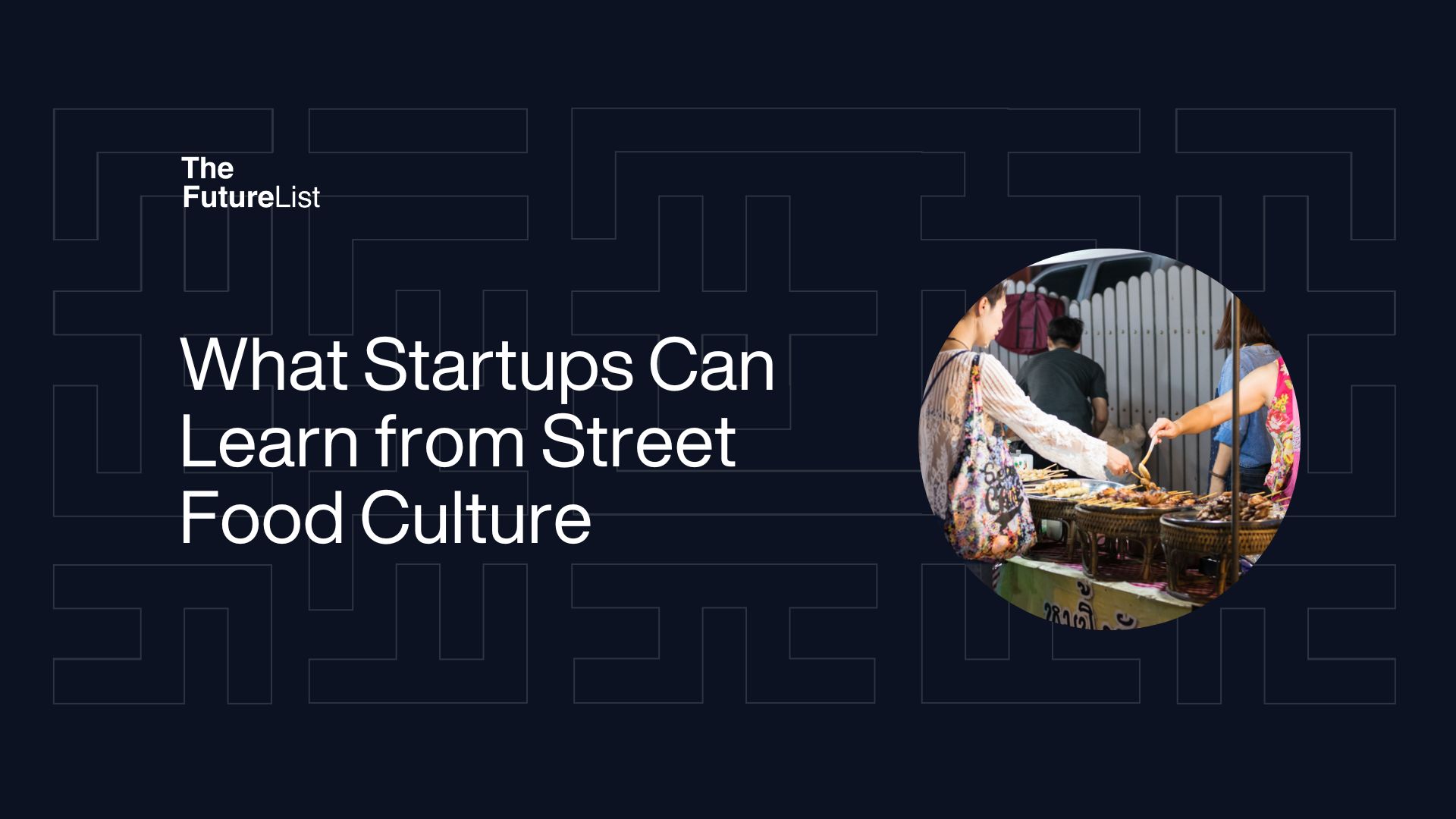
What Startups Can Learn from Street Food Culture
By David Armaah
When you think of innovation, your mind might jump to Silicon Valley whiteboards, pitch decks, or tech accelerators. But some of the most adaptive, user-centered innovations in the world are sizzling on grills, bubbling in carts, and served curbside through the rich, complex world of street food.
Every city has its street food heroes. What if we treated them not just as cooks, but as entrepreneurs, product designers, and systems thinkers?
Here’s what the world of startups can learn from the world’s street food vendors:
🔁 1. Start Small. Iterate Fast.
Street vendors don’t launch with 20 dishes—they start with two or three. They watch how people react, tweak spice levels, change portion sizes, or add a dipping sauce if people keep asking. They test in real-time, in public, and with zero buffer between feedback and change.
📍 Startup lesson: MVP isn’t a buzzword—it’s survival. Founders must ship small, listen obsessively, and evolve in the open.
Think of how early-stage startups like Tally (the no-code form builder) launched as a scrappy alternative to Typeform, iterated quickly, and grew through user feedback, not big campaigns.
🌶️ 2. Serve What People Crave, Not What You Fancy
Street food is rooted in local tastes, rhythms, and routines. A taco stand in Mexico City doesn’t sell sushi rolls. A jollof rice vendor in Accra isn’t guessing, it’s grounded in culture and demand
📍 Startup lesson: Great founders build for real, specific users. That means deep empathy, context, and cultural fluency, not assumptions.
African fintech startups like Paystack succeeded because they understood local trust systems, mobile behaviors, and small-business needs. They weren’t just cloning Stripe, they were rethinking it for Nigeria.
⚖️ 3. Balance Craft with Scalability
Most street vendors aren’t building chains. But they still think in systems, how to prep faster, store ingredients, and manage peak hours. It’s not about being fancy; it’s about being repeatable, efficient, and consistent under pressure.
📍 Startup lesson: Operational thinking is innovation, too. Scalability starts with process, not perfection.
Consider CloudKitchens or Rebel Foods – ghost kitchen startups that took street vendor logic and systematized it. Modular, multi-brand, low-overhead food production at scale.
🤝 4. Trust Is the Real Platform
You don’t need a marketing funnel when your customers come back every day. What builds that loyalty? Consistency, fair pricing, and a little flair. The best vendors know your order, greet you by name, and keep it honest.
📍 Startup lesson: Product-led growth is real, but trust-led growth is deeper. Don’t just acquire users, earn them.
Startups like Medikea in East Africa, which provide affordable diagnostics via mobile, rely more on community trust and word-of-mouth than venture PR. That’s a powerful moat.
🛺 5. Adapt to the Street, Not the Storefront
Street food survives unpredictability – weather, regulation, foot traffic, and power cuts. Vendors shift carts, change routes, and adjust menus. Their success is tied to how quickly they adapt to real-world constraints.
📍 Startup lesson: Market conditions change. Your plan will break. What matters is agility under pressure.
During COVID, startups like Virgio and ClassPass pivoted not because they wanted to, but because their streets (or users) changed. They survived because they didn’t panic; they adapted.
🌮 Final Bite: Innovation is a Street Sport
The startup world loves to chase unicorns. But street food reminds us that survival is a form of innovation. That human-centered design isn’t a workshop; it’s a daily negotiation between product and people. That speed, culture, and empathy are worth more than polish and funding rounds.
So, the next time you’re walking past a food cart, take a closer look. You might just be watching a masterclass in lean startup thinking, powered by spice, soul, and survival.
Get innovation insights from The FutureList weekly. Subscribe to our newsletter here
Categories
- Agritech
- Artificial Intelligence
- Biotech
- Blockchain
- Climate Tech
- Data Infrastructure
- Edtech
- Events
- Fashion
- Fintech
- Healthtech
- Infrastructure
- Innovation Memos
- Innovation Scout Program
- Insight
- Insurtech
- Machine Learning
- Martech
- Mobility
- Music and Media
- Partner Offers
- Perks
- Procurement
- Proptech
- Retailtech
- Ridehailing
- Ridesharing
- Robotics
- Space Aviation
- Supply Chain
- Talent
- Telecoms
- Uncategorized
- Venture Capital
- Wastetech
- Women In Tech
Recent Posts
- The Rise of Physical AI: Intelligence Moving Into the Real World
- Shaping the Future of Medicine: How Tiny Devices Are Revolutionising Vital Body Functions
- The Rural Health Operating System: Reinventing Access to Care in Africa
- Intelligent Grid Monitoring: How IoT and AI Are Powering the Future of Energy
- Innovation Memo with STEMAIDE: Hands-on STEM Education for Young Africans